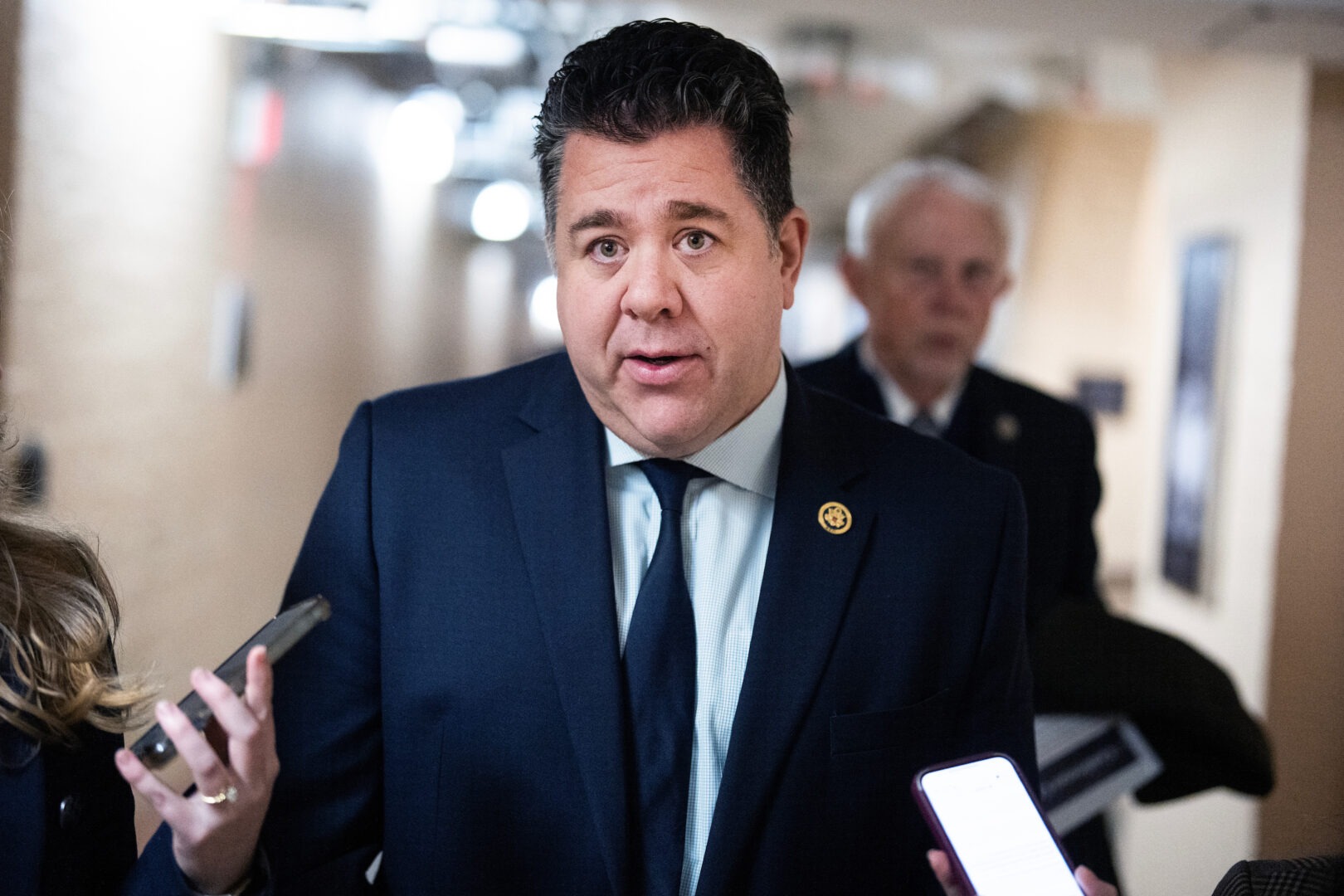Speaker Mike Johnson has announced plans to bring the $78 billion bipartisan family and business tax break bill to the House floor, likely under suspension of the rules.
While the timing remains unspecified, some anticipate the bill could face floor consideration as early as this week.
The bill, negotiated by House Ways and Means Chairman Jason Smith and Senate Finance Chair Ron Wyden, allocates approximately $33 billion to revive business tax credits and an equal amount to expand the child tax credit.
The proposed suspension vote has drawn criticism from both blue state Republicans and the party’s conservative wing, with concerns about bypassing the Rules Committee and limiting floor debate.

House GOP (Credits: J. Scott Applewhite)
Johnson’s move to potentially hold a suspension vote has triggered opposition within the GOP, with members threatening to disrupt unrelated rules in retaliation.
Representative Nick LaLota highlighted the importance of addressing concerns like raising the $10,000 cap on state and local tax deductions in the package.
Some Republicans argue for increasing the cap to $20,000 for married couples, emphasizing the need for reciprocity in supporting legislation.
The bill encompasses various provisions, including resurrecting business tax credits, expanding the child tax credit, enhancing affordable housing credit, extending tax benefits to Taiwan, and providing tax relief for natural disaster victims.
The discontent among Republicans, particularly those from blue states, stems from the perception of insufficient reciprocity in supporting legislation. They stress the importance of a balanced approach where both red and blue districts’ priorities are considered.
The possibility of considering the bill under suspension has triggered objections from the House Freedom Caucus, aligning with conservative think tanks opposing specific provisions like the child tax credit expansion.
Critics argue that a wholesale suspension of rules would undermine the intended legislative process and call for a more structured approach.
Amid these developments, passing the bill on suspension would require a two-thirds majority, necessitating significant support from Democrats. However, House Democrats have raised concerns about the bill’s limited child tax credit expansion.
Representative Rosa DeLauro criticized the package, highlighting corporations benefiting from tax breaks and emphasizing its shortfall compared to the 2021 child tax credit expansion.
The bill’s fate remains uncertain, with Democrats expressing reservations and disagreements on specific provisions. While some Democrats on the Ways and Means Committee supported the bill during the markup, concerns persist, particularly regarding the child tax credit.
The legislative process will likely face challenges, reflecting the intricate dynamics and varying priorities within the House.























